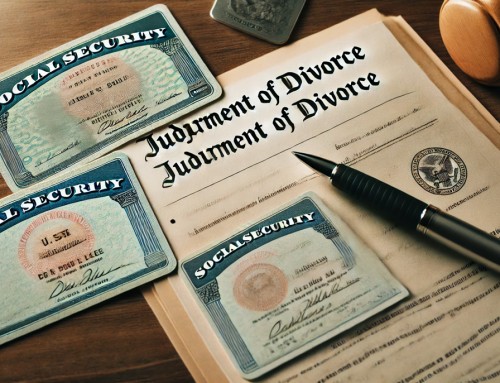I have heard of a number of “elderly” couples holding “weddings” for appearances only and not signing the
 documents to make it legal. Why? They don’t want to set a bad example for their children or grandchildren, but they have concluded that getting married may be a bad idea for them from a financial perspective. Here’s why.
documents to make it legal. Why? They don’t want to set a bad example for their children or grandchildren, but they have concluded that getting married may be a bad idea for them from a financial perspective. Here’s why.
As I wrote in a previous blog, when you remarry you are giving your new spouse a Right of Election; that is, he or she can now claim 1/3 of your estate even if you want to leave everything to your children. And of course this portion of your estate will now probably go to your new spouse’s children upon his or her death and your kids get cut out.
Since these concerns can be alleviated with a prenuptial agreement, they would not present a valid reason for not getting remarried. However, there is one concern that a prenuptial agreement cannot resolve – – medical bills. You may be responsible for the medical bills of your spouse, including the cost of long-term care if your spouse enters a nursing home!
While the law allows you to exempt your house, a car and some income when your spouse applies for Medicaid, you may have to dip in to your own assets, including retirement accounts, before your spouse qualifies for Medicaid, which you would not be required to do if the two of you simply lived together without being married.
Surprised! I certainly was when an elderly, married couple approached me for a divorce because he was about to enter a nursing home and she had been told that her own retirement accounts could be used to pay for his care! When I checked this out with Kate Toombs (Tombs & Meier PLLC ), an Elder Law attorney, she confirmed that this was in fact true and that Medicaid might even look at the divorce to determine if it was a “real” divorce or not when determining if he would qualify. (I did not help them with the divorce but sent them to this attorney for advice).
My advice, then, for anyone considering a remarriage, especially if you are of a “certain age” is to give this careful consideration. It might be wise to perhaps purchase long-term care insurance, and get the advice of an Elder Law attorney before tying the knot.
Or, if it does not offend your values, just live together!
Share with Friends:
Need More Information?
To schedule a free phone or video consultation, complete and submit the form below, email us at [email protected], or call 518-529-5200.





